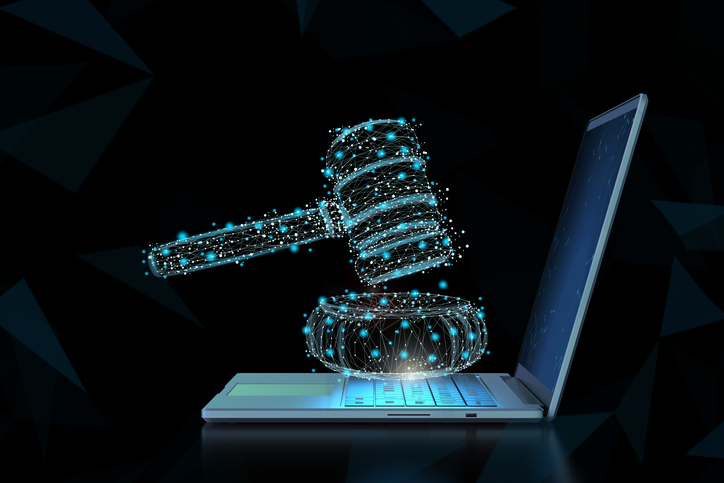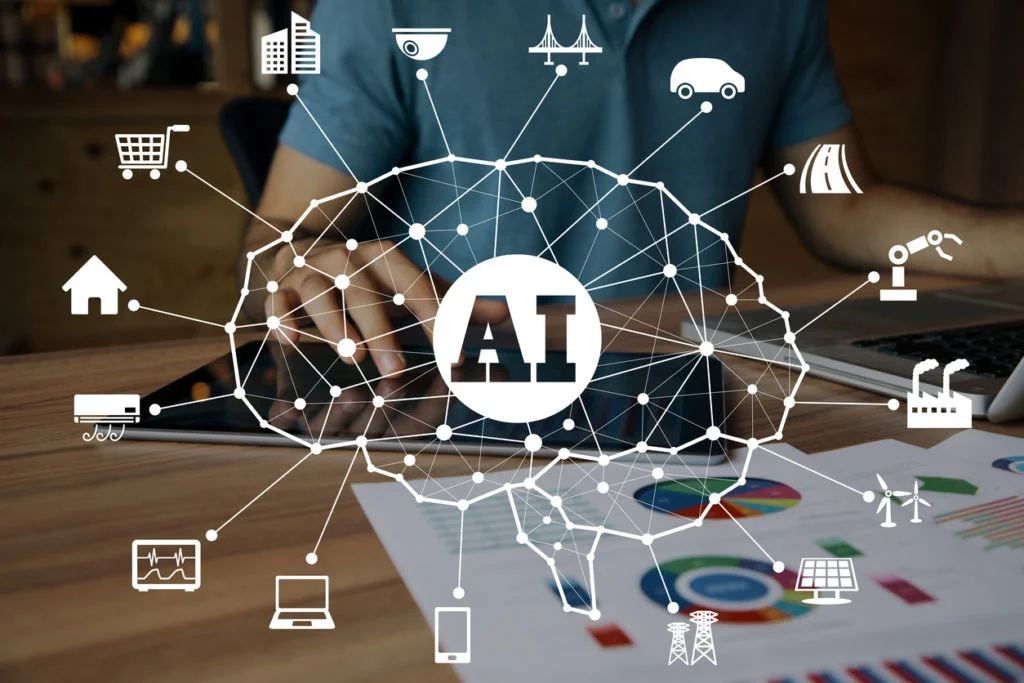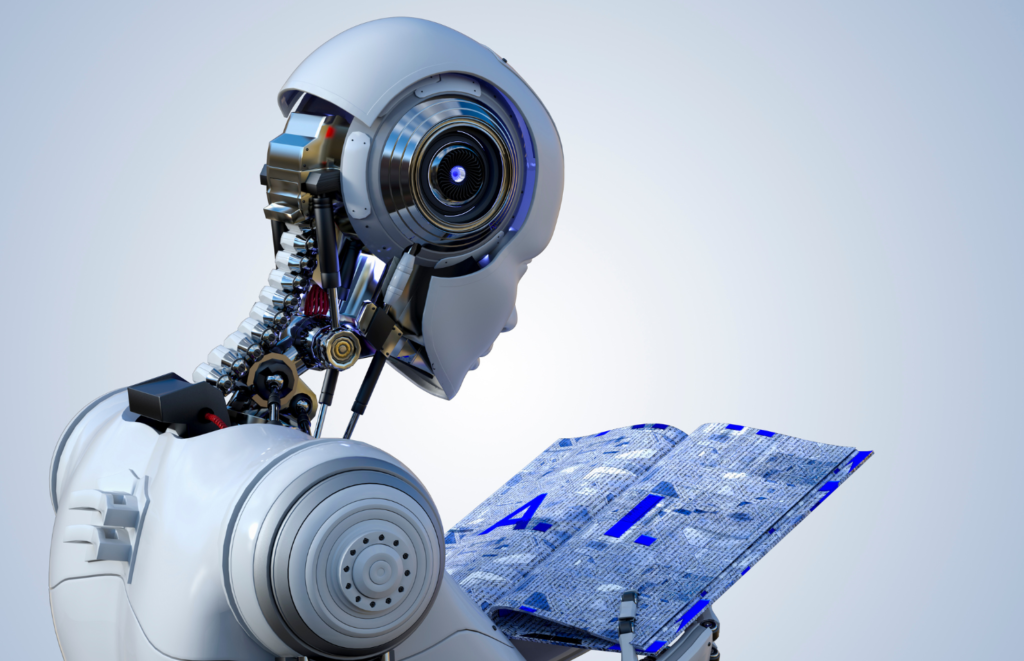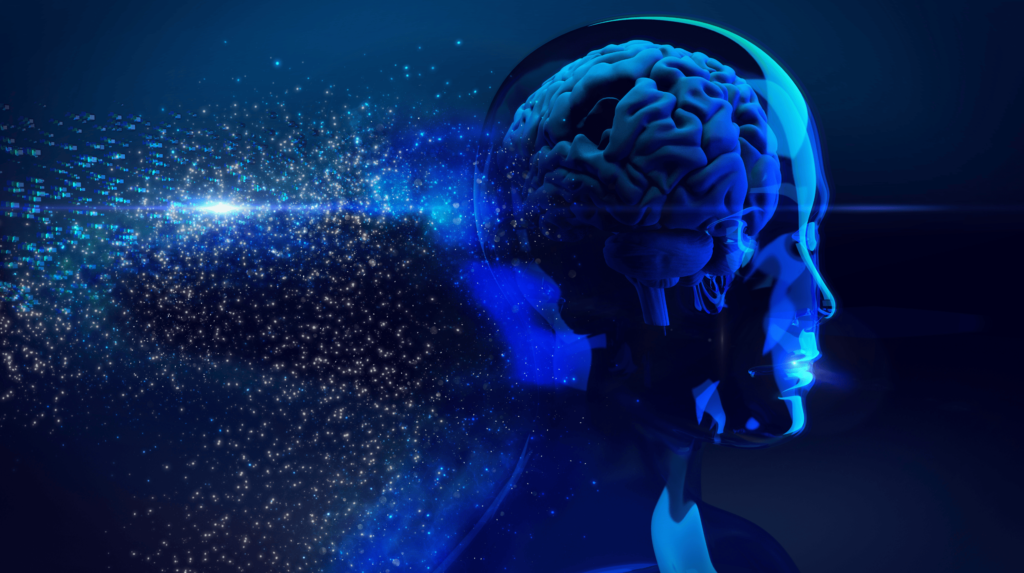Artificial intelligence has emerged as a disruptive force across numerous sectors in this fast-paced era of technological breakthroughs. As these solutions reshape company operations, businesses must embrace the power of AI and negotiate its complex legal framework. This article discusses several legal aspects of AI projects. By thoroughly investigating these elements, businesses can guarantee that their AI attempts are creative and legally sound.
Intellectual Property Rights
Intellectual Property (IP) Protection for AI Innovations
AI initiatives frequently entail the development of novel algorithms, software, and applications. Businesses must secure these breakthroughs through IP protection procedures. Patents can grant the creator exclusive rights for a certain period; however, patenting AI might be difficult because of the demand for considerable technological improvement. The approach entails proving how the AI solution provides a one-of-a-kind answer to a specific problem. Legal competence is required to comprehend the subtleties of patent law in the context of AI.
Copyrights and Trade Secrets in AI
The expressive aspects of AI software, including source code and creative elements, are protected by copyright. It prevents illegal usage or copying of the program. In contrast, trade secrets safeguard proprietary algorithms and models. However, keeping trade secrets hidden is critical; otherwise, their protection can be jeopardized. In collaborative initiatives involving numerous partners, clarifying ownership and usage rights is crucial to avoid future problems. A strong IP strategy in AI initiatives requires proper paperwork and contractual agreements defining these elements.
Open-Source and Collaboration
Collaboration and shared information are key in the field of artificial intelligence. With its accessible codebases and collaborative spirit, open-source software frequently plays a vital role in AI initiatives. Organizations use open-source components to speed up development and innovation. However, using open-source software involves strict adherence to licensing restrictions. These licenses can range from permissive licenses allowing unrestricted usage to copyleft licenses requiring derivative works to be open-sourced. AI practitioners must grasp the consequences of various open-source licenses and ensure compliance to avoid legal ramifications.
Data Privacy and Security
Data Privacy Regulations in AI
AI’s reliance on data raises serious data privacy problems. Regulations such as GDPR and CCPA impose rigorous requirements on firms that handle personal data. It includes getting individuals’ informed consent for data usage and properly stating the data collection goal. Moreover, it ensures that subjects can view and remove their data. Noncompliance can result in significant penalties and reputational harm. Legal and compliance teams must collaborate closely with AI engineers to ensure these rules are followed throughout the AI project lifecycle.
Privacy by Design in AI Systems
Privacy by design is a notion that requires AI projects to address privacy considerations from the start. It entails including privacy precautions in AI system design and development. Individual data privacy can be protected during AI model training using techniques such as differential privacy. In order to protect user privacy while still providing the desired functionality of AI systems, legal, technological, and ethical stakeholders must work together to implement privacy-enhancing features. These features are essential to ensuring that AI systems are used in a responsible and ethical manner.
Cross-Border Data Transfers
Data travels across borders with remarkable ease in the AI’s connected world. However, legal difficulties hinder this flexibility. Many nations have strict data privacy rules regarding the personal information movement across borders.
For example, GDPR forbids the transfer of personal data to countries with inadequate data protection rules. Moreover, organizations working on AI projects must deal with these constraints and utilize Standard Contractual Clauses (SCCs) or Binding Corporate Rules (BCRs) to ensure legitimate data transfers. Failure to comply can result in significant penalties.
Liability and Responsibility
Accountability in AI Decision-making
The issue of responsibility emerges when AI systems grow more independent. Who is to blame if an AI system makes a bad decision? Current legal systems can be insufficient to address such instances. Establishing a framework for accountability is difficult because of the complexity of AI decision-making processes and the scattered nature of AI development. To provide a fair and viable answer, legal academics, ethicists, and AI specialists must work together across disciplines.
Determining Liability and Responsibility
Determining liability entails determining if the unpleasant consequence was caused by carelessness or misconduct and, if so, identifying the accountable party. It might be the AI system, the developers, or the operators. For example, if a self-driving car causes an accident, whether the manufacturer, software developer, or AI system should be held liable arises. Hence, a clear set of standards is essential for evaluating accountability and obligation to guarantee that the legal system keeps up with technological advances.
Product Liability and AI Malfunctions
Incorporating artificial intelligence into consumer items broadens the scope of product liability problems. Consider an accident caused by a software error in an autonomous car equipped with AI-driven navigation systems. In such cases, determining culpability demands reevaluating established product liability laws. Courts must decide if the AI system is a “defective product” and whether the producer should be liable. Organizations producing AI-driven products must foresee such circumstances and incorporate unambiguous contractual agreements, disclaimers, and insurance arrangements to avoid potential legal risks.
Ethical and Fair Use Concerns
Addressing Bias and Fairness in AI
AI systems can perpetuate inadvertent biases in training data. It raises ethical considerations regarding justice and fairness. Bias in AI models must be identified and mitigated, particularly in applications such as recruiting, lending, and criminal justice. A commitment to justice must be made throughout the development process to create AI models sensitive to these concerns.
Transparency and Accountability
Transparency is critical for making AI judgments intelligible and responsible. It makes AI models’ decision-making processes understandable to users and regulators. Furthermore, sharing the data used for training aids in identifying potential biases and guarantees that AI systems are held responsible for their activities. In certain jurisdictions, implementing transparency and accountability measures is an ethical necessity and a legal duty.
Explainability and AI Regulations
The demand for openness and accountability in decision-making processes grows in tandem with the evolution of AI systems. Regulatory agencies worldwide are realizing the need for AI systems to provide reasons for their judgments, particularly in high-stakes fields like banking and healthcare. The proposed Artificial Intelligence Act of the European Union emphasizes this by requiring “high-risk” AI systems to be open and explainable. Organizations embarking on AI initiatives must manage these shifting rules and invest in explainability methods to secure legal compliance and public trust.
Contracts and Licensing
Defining AI Technology Usage
Artificial intelligence and contract law have a robust connection when discussing AI projects. These agreements describe the terms and conditions for use when obtaining AI technology or engaging with suppliers. They specify the AI technology’s scope of usage, limits, upgrades, and support. Businesses must evaluate these phrases to avoid misunderstandings and disagreements later carefully.
Navigating Complexities
AI initiatives frequently need the integration of several components, including open-source software. Managing licensing complications to ensure compliance with open-source licenses and avoid legal issues is crucial. To avoid potential IP issues, agreements should cover IP ownership, data confidentiality, and usage rights when dealing with external developers or suppliers. Expert legal assistance is required to create contracts safeguarding all parties’ interests.
Employment and Labor Law
The Changing Landscape of Employment
The incorporation of AI into the workplace can result in changes in employment duties and responsibilities. As a result, businesses must manage labor regulations that control employee rights, job security, and fair treatment. They must also ensure that AI adoption conforms to employment standards to maintain a harmonious workforce.
Transparency in AI-Driven Decisions
Transparency in AI-powered choices is required to promote employee comprehension and confidence. Employees have the right to know how AI systems affect employment-related decisions such as promotions or terminations. Communicating the role of AI in such procedures reduces opacity concerns and ensures that people are treated equitably.
Balancing Efficiency and Fair Treatment
While artificial intelligence can improve operational efficiency, balancing efficiency and employee rights is essential. Firms must follow privacy and labor standards when AI systems collect data and make choices to protect employees’ rights. Transparent data collection and utilization communication help a legal and ethical workplace.
Conclusion
The legal aspects of AI projects drive success in AI initiatives. Intellectual property rights, data privacy, liability issues, ethical usage, contracts, and labor legislation shape these projects. Companies can stimulate innovation while protecting the rights and interests of all stakeholders by proactively addressing these legal issues. As AI advances, a symbiotic link between technical progress and legal wisdom will pave the path for a transformational and morally sound future.
Achievion aims to help small and medium-sized businesses with their legally compliant AI solutions. These solutions can help businesses excel in their industry and shape its course. Contact us today for more information.









